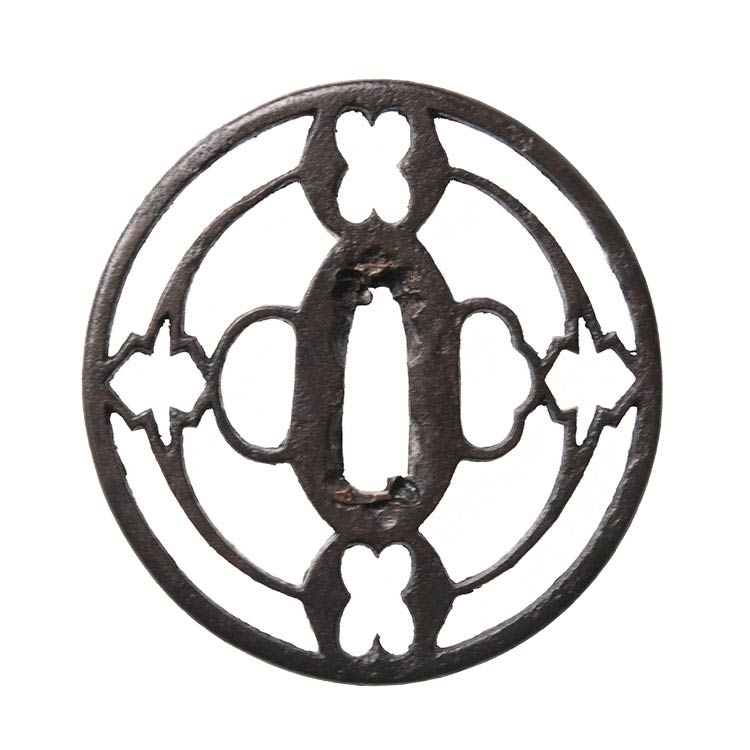
保存刀装具 Hozon Tousougu
尾張 鍔Owari Tsuba
No.337400尾張 抱茗荷松皮菱透鍔Owari Dakimyouga Matsukawabishi-sukashi Tsuba
ご成約Sold
- 極めKiwame
- 尾張Owari
- 時代Period
- 室町時代Muromachi period
- 法量Size
-
縦 7.8cm 横 7.5cm 切羽台 0.5cm 重量 80.0g
Length 7.8cm Width 7.5cm Seppadai 0.5cm Weight 80.0g
- 国Country
- 尾張Owari
- 説明Drscription
- 竪丸形 鉄槌目地 地透 丸耳
尾張鐔(尾張透鐔)は、現在の名古屋で製作され室町後期に始まり江戸初期に及んでいると推量される。同時代の透鐔の双璧である京透に比べ、力強く線の太い感じがある。図柄やつなぎの力強さ、肉置きの良さ、鉄色のさえなどが特色である。
丸形、竪丸形、次いで木瓜形あまり異形なものがない。切羽台は耳際の厚さに比べると少し低い。構図は上下左右釣り合いが対照的にまとまっていて、家紋図、糸巻図、琴柱図、茗荷図、花桐図などがあり人物図はない。Tatemarugata Tetsutsuchimeji Jisukashi Marumimi
Owari tsuba (Owari Sukashi Tsuba) is presumed to have been produced in present-day Nagoya, beginning in the late Muromachi period and extending to the early Edo period. Compared to the Kyototsuba, which is the two best openwork tsuba of the same period, it has a stronger and thicker feel to the lines. The design and strength of the connection, good meat placement, iron-colored evenness, etc.
Round shape, vertical round shape, followed by Mokko shape. The face base is slightly lower than the thickness of the ear. The composition has a contrasting balance between top and bottom, left and right, and includes Kamon(family crests), thread windings, koto pillars, myoga, and hanakiri, but no figures.


